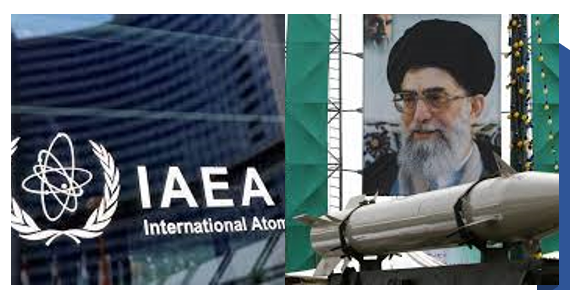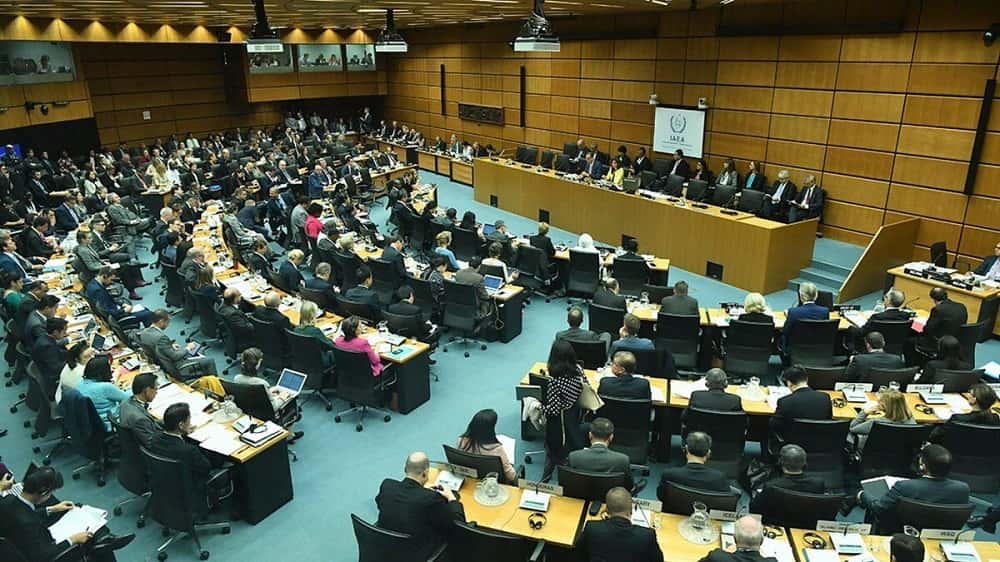
A concerning update from Reuters on November 15 reveals that Iran now possesses uranium enriched to 60% purity, sufficient for three atomic bombs according to International Atomic Energy Agency (IAEA) standards.
The IAEA has noted a 6.7 kg increase in Iran’s stock of 60% enriched uranium, totaling 128.3 kg since their last report on September 4. This amount significantly exceeds the 42 kg threshold deemed sufficient, once further enriched, to produce a nuclear bomb. This dramatic acceleration in uranium enrichment represents a serious threat to both regional and global security.
Iran’s cooperation with the IAEA has been increasingly problematic. The regime’s partial compliance with a March agreement to reinstall monitoring equipment and the September “de-designation” of key IAEA inspectors have hindered the agency’s verification efforts. The November reports from the IAEA highlight the urgent need for a stronger international response.

Fears of provoking counter-reactions and regional conflict have limited the enforcement of meaningful measures against the Iranian regime. This appeasement policy has inadvertently empowered Tehran, allowing its nuclear program to advance unchallenged.
Despite warnings from the E3 (Britain, France, Germany) and the U.S. in September, the West has avoided issuing formal condemnations or setting clear deadlines for Iran to comply with IAEA investigations into Nuclear Non-Proliferation Treaty violations. This lack of accountability raises concerns about Iran’s unchecked progression towards nuclear weaponization.
Rafael Grossi, the Director General of the IAEA, has expressed grave concerns about the situation. In a Financial Times interview, he emphasized the risks associated with Iran’s nuclear activities and urged the international community to remain focused on these risks amid other regional conflicts.
Iran’s continued progress in uranium enrichment, coupled with the IAEA and Western powers’ inadequate responses, poses a significant challenge to global efforts to prevent nuclear proliferation. The Iranian regime’s disregard for international agreements and commitments can be traced to Western nations’ appeasement policies, marked by retreats from stated red lines and a failure to hold Iran accountable for its actions.
The regime’s nuclear dossier must be referred to the UN Security Council as soon as possible, and the six UNSC resolutions should be reinstated by the trigger mechanism, which should have been done a long time ago#Iran#JCPOA pic.twitter.com/9SK0sAe9LD
— Maryam Rajavi (@Maryam_Rajavi) September 14, 2022
To effectively counter Iran’s nuclear aspirations, these nations should have reinstated the six UN Resolutions and activated the snapback mechanism outlined in UNSCR 2231. Such decisive action could have prevented the world’s leading state sponsor of terrorism from acquiring the most dangerous weapons of mass destruction.
The ongoing turmoil in the Middle East underscores the need for decisive action against Tehran’s extremist regime. Without firm measures, the region and the world will continue to face instability and a lack of peace.

MEK Iran (follow us on Twitter and Facebook), Maryam Rajavi’s on her site, Twitter & Facebook, NCRI (Twitter & Facebook), and People’s Mojahedin Organization of Iran – MEK IRAN – YouTu







